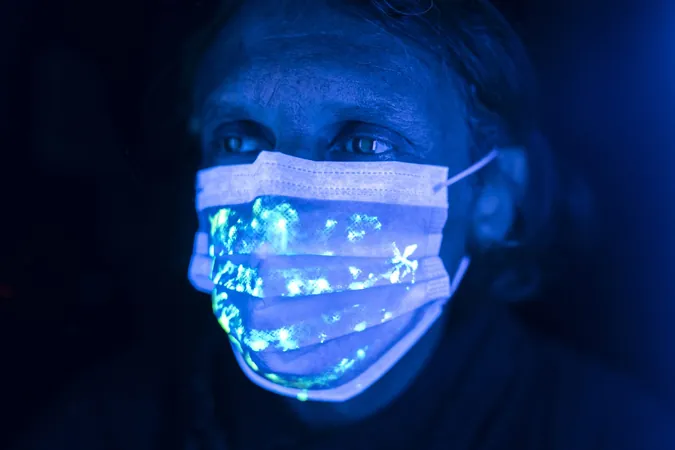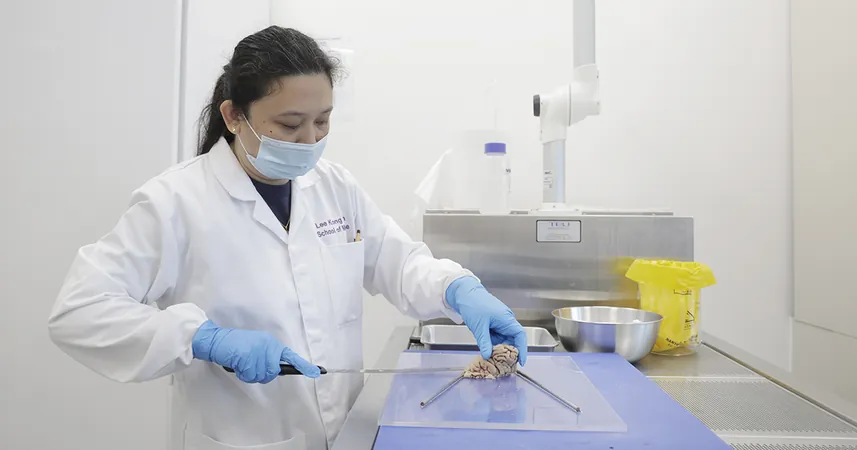
Breakthrough Clinical Trial Offers Hope for Transformative Oral Snakebite Treatment
2025-03-13
Author: Ming
Introduction
In an exciting development that could revolutionize snakebite treatment, researchers from the Liverpool School of Tropical Medicine (LSTM) have successfully completed a Phase I clinical trial for a promising new oral therapy for snakebite envenoming. Conducted in collaboration with the Kenya Medical Research Institute (KEMRI) Wellcome Trust Research Programme, the study was published in the esteemed journal eBioMedicine.
The Drug Unithiol
The drug, known as unithiol, has shown remarkable safety and tolerability, making it an ideal candidate for use in remote and rural clinics where access to traditional medical facilities is limited. Unlike conventional antivenom treatments, which can be expensive and require intravenous administration, unithiol can be taken as a simple pill, significantly improving accessibility for those in desperate need.
Global Health Impact
Unithiol is already recognized for its effectiveness in treating heavy metal poisoning, but recent research highlighted its potential in combating snakebite envenoming—a serious global health issue responsible for over 140,000 deaths annually in regions such as rural Sub-Saharan Africa, Latin America, and parts of Asia. The drug works by effectively neutralizing snake venom metalloproteinases (SVMPs), toxic components in the venom that cause extensive tissue damage and life-threatening bleeding.
Expert Opinions
Dr. Michael Abouyannis, the study’s lead author, noted the urgency of improving snakebite treatment. "Current antivenom treatments are based on century-old methods—a reflection of how neglected snakebite has become in global health discourse. Unithiol represents a leap towards more advanced, effective, and accessible therapies."
Phase I Trial Results
Preliminary studies conducted by the LSTM team previously indicated that unithiol might mitigate the severe effects of snake venom, potentially saving lives. The Phase I trial explored various dosing protocols of both oral and intravenous unithiol. Notably, the findings revealed that participants experienced no significant adverse effects, even with higher dosing, while blood analysis confirmed rapid drug absorption capable of inhibiting snake venom toxins effectively.
Future Directions
Buoyed by these results, LSTM plans to advance unithiol to Phase II clinical trials, targeting patients who have suffered snakebites. The successful deployment of this oral treatment could prove crucial. As Professor Nicholas Casewell, Director of the CSRI at LSTM, emphasized, "Snakebites predominantly occur in isolated areas where hospitals are far away. The advancement of unithiol is a big step towards ensuring that treatment can be administered swiftly and locally, making a profound difference in patient outcomes."
Conclusion
While unithiol may not completely eliminate the risk of snakebite envenoming, it has the potential to alleviate its most severe consequences, buying victims precious time to seek further medical care—ultimately reducing mortality and disability rates associated with snakebites.
As we look forward to the commencement of Phase II trials, the medical community is hopeful that this innovative approach could herald a new era in snakebite management, providing life-saving treatments far beyond the scope of traditional methods. Stay tuned for updates as this transformative journey continues!




 Brasil (PT)
Brasil (PT)
 Canada (EN)
Canada (EN)
 Chile (ES)
Chile (ES)
 Česko (CS)
Česko (CS)
 대한민국 (KO)
대한민국 (KO)
 España (ES)
España (ES)
 France (FR)
France (FR)
 Hong Kong (EN)
Hong Kong (EN)
 Italia (IT)
Italia (IT)
 日本 (JA)
日本 (JA)
 Magyarország (HU)
Magyarország (HU)
 Norge (NO)
Norge (NO)
 Polska (PL)
Polska (PL)
 Schweiz (DE)
Schweiz (DE)
 Singapore (EN)
Singapore (EN)
 Sverige (SV)
Sverige (SV)
 Suomi (FI)
Suomi (FI)
 Türkiye (TR)
Türkiye (TR)
 الإمارات العربية المتحدة (AR)
الإمارات العربية المتحدة (AR)